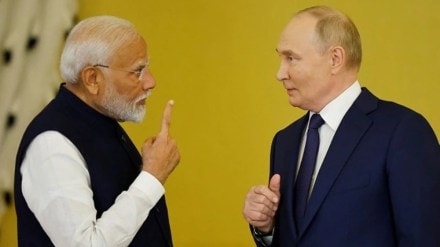There has been a widening ambit of US-led western sanctions against Russia for its invasion of Crimea in 2014 and Ukraine since 2022 to curtail its oil revenues and acquisition of critical dual-use technologies for both civilian and military applications to aid its offensive. India has been in the crosshairs of this sanctions regime due to its increasing reliance on energy imports from Russia and now for being the second biggest supplier of restricted dual-use technologies to Moscow. Although India is increasingly aligned with the West, especially the US — and is therefore mindful to not circumvent the sanctions regime — it also has a long-standing strategic relationship with Russia. Despite pressure from western nations, India has held firm in its resolve to purchase Russian oil to enhance its energy security.
While the government has forcefully defended such purchases, it has not officially reacted to reports in the Financial Times and Bloomberg that Russia has been acquiring sensitive goods from India for its war effort, with almost a fifth of sensitive technologies that goes into its military-industrial complex having got there via India. Dual-use goods from India include microchips, circuits, and machine tools. The deafening official silence possibly stems from the fact that it is liberalising norms for certain products for dual-use applications; that the items being closely identified by the US-led western nations are not necessarily part of the special chemicals, organisms, materials, equipment, and technologies (SCOMET) category which require licensing for trade.
Dual-use goods are categorised under the SCOMET list in India. Recently, the government notified rules easing the export of 36 items, including software and technology, from Indian parent companies to their foreign subsidiaries in 41 countries — including Russia, the UK, and the US — under its policy for dual-use products. Yet the fact remains that a few Indian firms have come under the sanctions scanner like the Bengaluru-based Si2 Microsystems in November last year for its alleged role in supplying dual-use technology to Moscow. Innovio Ventures also features in reports as the supplier of at least $4.9 million worth of electronic equipment, including drones, to Russia. The government would do well to clarify whether these dual-use supplies are not SCOMET items.
India has a $65 billion trade with Russia largely driven by its burgeoning energy imports. But its exports of nuclear reactors, boilers, machinery and mechanical appliances and parts, and electrical machinery, including parts, are booming, accounting for 34.5% of the total this fiscal to July from 19.2% in the corresponding period last fiscal. Western sanctions — with a growing list of Russian banks being removed from SWIFT, a network that connects thousands of financial institutions around the world — have created difficulties in paying for such transactions. Some of the oil purchases have been transacted in rupees, leaving Russia with a surplus of the currency. This may have driven sourcing of restricted dual-use goods and technologies paid in rupees. Moscow has even envisaged investing in bilateral electronics development and production facilities to source parts for telecom and complex electronic equipment. Unless a robust trade settlement mechanism in local currencies is put in place beyond the oversight of western countries, the prospect is for India to run afoul of the sanctions regime with a US deputy treasury secretary warning India’s leading apex chambers in July that “any foreign financial institution that does business with Russia’s military industrial base risks being sanctioned itself”.
